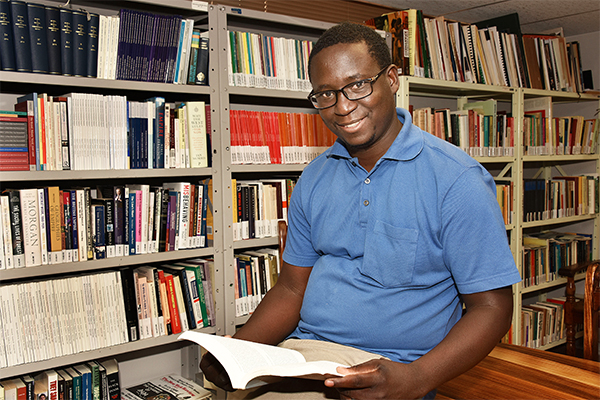Latest News Archive
Please select Category, Year, and then Month to display items
28 October 2024
|
Story Zingaphi Mdletshe
|
Photo Supplied
 Kovsie ACT volunteers undergo leadership and skills training, preparing them to engage in community service and develop sustainable solutions to societal challenges beyond university life.
Kovsie ACT volunteers undergo leadership and skills training, preparing them to engage in community service and develop sustainable solutions to societal challenges beyond university life.
The University of the Free State’s (UFS) Kovsie ACT office continues to foster a spirit of humanity among students through a leadership and skills development training initiative that is aimed at not only developing them as volunteers but also as conscientious individuals who understand the value of helping others.
“The leadership and skills development training is a platform that the ACT office utilises to ensure that volunteers are equipped with the necessary skills needed to fulfil their duties as Central ACT Committee members, thereby facilitating a smooth term,” said Teddy Sibiya, Senior Assistant Officer at Kovsie Support Services. “We aim to impart knowledge that will be beneficial during their term and beyond their involvement with the ACT office.”
Touching on how the training aligns with the broader goals of the Kovsie ACT Volunteer Programme for the term 2024/2025, Sibiya emphasised that sustainability has always been at the heart of Kovsie ACT and that their activities provide opportunities for students to engage in community service and participate in environmental initiatives to assist civil society organisations. The programme also encourages students to become active global citizens by addressing transnational issues such as food insecurity and socio-economic challenges.
“I am excited about the opportunity to be part of a movement that influences not just the lives of students but also reaches beyond the university, promoting innovative and sustainable solutions on a larger scale,” said Raylene Bussack, a Central ACT Committee volunteer. “My goal is to inspire and empower others to join us in this vital work to make a lasting difference together.”
In addition to leadership training, Kovsie ACT offers various programmes designed to enhance students' skills in areas such as communication, teamwork and project management. These skills are essential for their roles within Kovsie ACT and for their future careers. By participating in community service projects, students build valuable relationships and gain practical experience that will benefit them upon graduation. The initiative ultimately aims to create a culture of giving back among students while enriching their university experience.
Land a fertile field for historians
2017-12-25

Dr Admire Mseba, historian and researcher in the International Studies Group (ISG).
Photo: Charl Devenish
The use of land and the economics of Southern Africa at present is a contentious subject at almost every level of society. A historian and researcher who revels in happenings in these two areas, is Dr Admire Mseba, a postdoctoral research fellow in the International Studies Group (ISG) at the UFS.
Dr Mseba grew up in the Mberengwa region in southern Zimbabwe, known for cattle farming and mineral mining. While at the University of Zimbabwe, he became interested in economic history and archaeology, and completed his PhD at the University of Iowa in the USA. During his time there, Dr Mseba also became passionate about environmental history.
A historian's ability to think and engage critically on diverse subjects drew Dr Mseba to his field. Currently, he is busy with three research projects. Firstly, he is working on a book on social relations, about access to land in Zimbabwe. He is also examining regional and national efforts to control migratory pests during the 20th century, in particular, the red locust. In collaboration with a colleague at the ISG, Dr Mseba is also researching monetary systems in central Africa, covering the present-day countries of Zimbabwe, Malawi, and Zambia.
Dr Mseba believes future research opportunities in the domains of economic and environmental history abound. For one, the land question has been very topical in Zimbabwe for more than a decade—as it is now in South Africa—and needs more scrutiny. Regarding agrarian pestilences, he indicates the recent phenomenon of armyworm invasion. “There are so many opportunities for historians to investigate. There are so many ways to think about these things and trying to put it in perspective.”